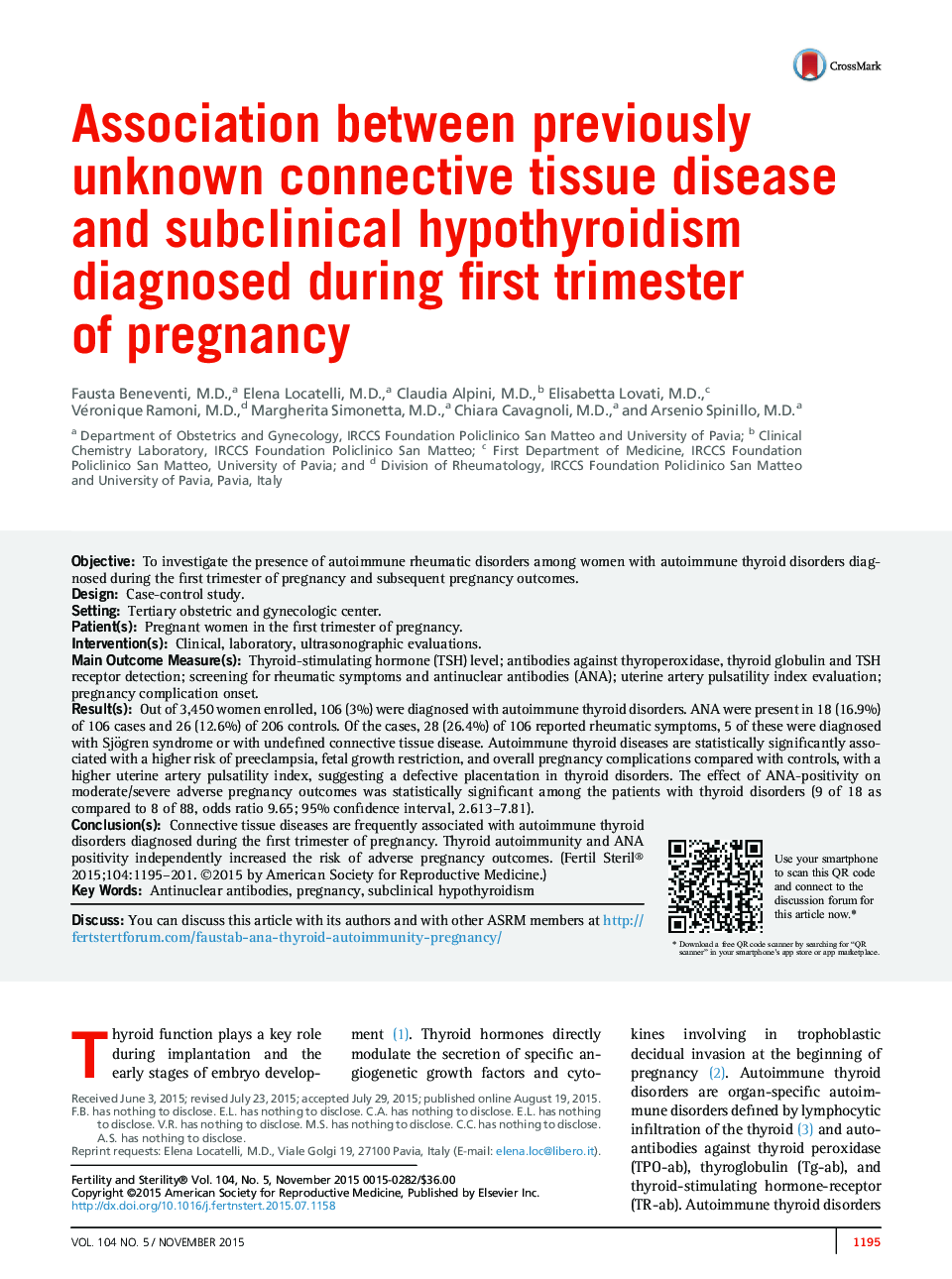| Article ID | Journal | Published Year | Pages | File Type |
|---|---|---|---|---|
| 3935634 | Fertility and Sterility | 2015 | 7 Pages |
ObjectiveTo investigate the presence of autoimmune rheumatic disorders among women with autoimmune thyroid disorders diagnosed during the first trimester of pregnancy and subsequent pregnancy outcomes.DesignCase-control study.SettingTertiary obstetric and gynecologic center.Patient(s)Pregnant women in the first trimester of pregnancy.Intervention(s)Clinical, laboratory, ultrasonographic evaluations.Main Outcome Measure(s)Thyroid-stimulating hormone (TSH) level; antibodies against thyroperoxidase, thyroid globulin and TSH receptor detection; screening for rheumatic symptoms and antinuclear antibodies (ANA); uterine artery pulsatility index evaluation; pregnancy complication onset.Result(s)Out of 3,450 women enrolled, 106 (3%) were diagnosed with autoimmune thyroid disorders. ANA were present in 18 (16.9%) of 106 cases and 26 (12.6%) of 206 controls. Of the cases, 28 (26.4%) of 106 reported rheumatic symptoms, 5 of these were diagnosed with Sjögren syndrome or with undefined connective tissue disease. Autoimmune thyroid diseases are statistically significantly associated with a higher risk of preeclampsia, fetal growth restriction, and overall pregnancy complications compared with controls, with a higher uterine artery pulsatility index, suggesting a defective placentation in thyroid disorders. The effect of ANA-positivity on moderate/severe adverse pregnancy outcomes was statistically significant among the patients with thyroid disorders (9 of 18 as compared to 8 of 88, odds ratio 9.65; 95% confidence interval, 2.613–7.81).Conclusion(s)Connective tissue diseases are frequently associated with autoimmune thyroid disorders diagnosed during the first trimester of pregnancy. Thyroid autoimmunity and ANA positivity independently increased the risk of adverse pregnancy outcomes.
